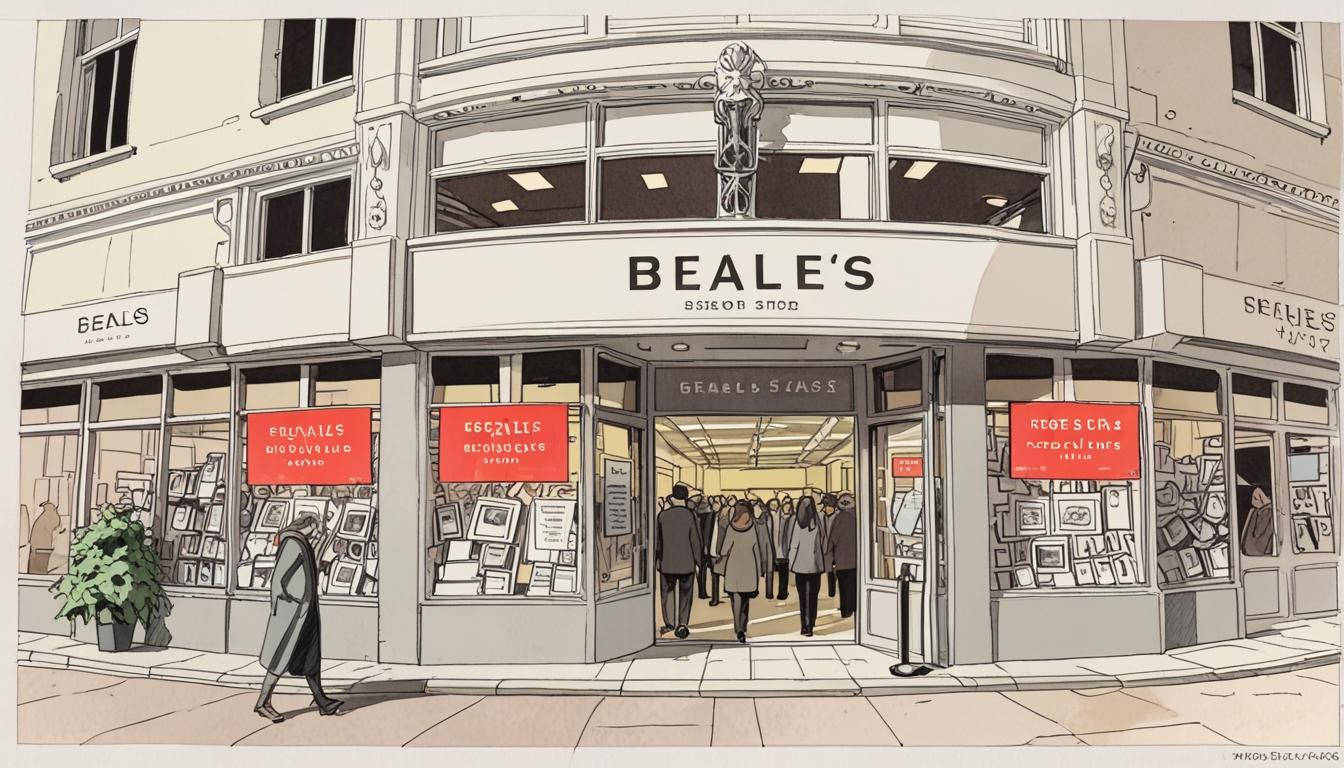One of Britain's oldest department stores, Beales, is set to close its last remaining outlet in Poole, Dorset, at the end of this month, citing the impact of recent tax rises introduced in last October’s Budget as a key factor rendering the business unsustainable. Established in 1881, Beales has operated for over 140 years, originally founded in Bournemouth and expanding to numerous branches nationwide. However, shifting economic conditions and increased financial burdens have led to the closure of all other stores since the company entered administration in January 2020.
The final branch closure has been accompanied by a striking “Rachel Reeves closing down sale,” with posters fronting the store displaying the Labour Chancellor’s image alongside the tagline: “Rachel Reeves’ closing down sale, up to 80 per cent off, everything must go.” Tony Brown, Beales’ Chief Executive, told The Independent that the posters represent “an absolute dig that the budget.” He emphasised that the rises in National Insurance contributions, the National Minimum Wage, alongside the reduction in business rates relief, collectively imposed an additional annual cost of around £200,000 on the business, making continued operation “unviable.”
Business rates, a tax on companies occupying physical property, had previously benefited from a 75% relief during the pandemic. This relief dropped to 40% in April, intensifying financial pressures on retailers like Beales. Brown expressed concern that the government’s ongoing fiscal policy risks further closures across the retail and hospitality sectors. “There are many other businesses out there, both in retail and hospitality that are in the same position,” he noted. He further commented that for years major brands have withdrawn from the high street due to unsustainable costs, describing the budget as “the straw that broke the camel’s back.” Brown indicated his apprehension over future fiscal policy, stating, “I personally have no confidence that they won’t further increase tax.”
The Poole store, which currently employs 30 people, marks the end of Beales’ presence on the high street, a situation reflective of broader trends where physical retail faces challenges from rising rents, business rates, and online competitors. Brown shared that the poster campaign has garnered sympathy among retail peers, many of whom are facing similar struggles with reduced hours, recruitment freezes, or job cuts due to prevailing economic pressures.
Responding to the closure, a government spokesperson acknowledged the decision as commercial but sympathised with the impact on workers and families. The spokesperson highlighted the administration’s fiscal priorities, including addressing a financial deficit left by the previous government and increasing NHS appointments, while outlining ongoing support measures aimed at businesses through regulatory reforms and government plans intended to improve economic security.
The British Retail Consortium (BRC) contextualised Beales’ closure within wider retail sector difficulties, noting the loss of over 250,000 jobs in the last five years. Helen Dickinson, the BRC’s chief executive, pointed to the cumulative effect of factors such as rising National Insurance costs, increased living wage requirements, new taxes including a £2 billion packaging tax introduced in October, and anticipated regulatory changes linked to the Employment Rights Bill. Dickinson stated, “The closure of Beales is not the first, and will not be the last retailer crushed under the weight of the £7bn in additional costs on retail confirmed in last October’s Budget. Other retailers are pulling back on local investment in new shops, reducing hiring plans or announcing job cuts.”
Beales’ closure signals an end of an era for one of Britain’s longstanding retail institutions, highlighting ongoing sector challenges amid shifting economic policies and market forces.
Source: Noah Wire Services
